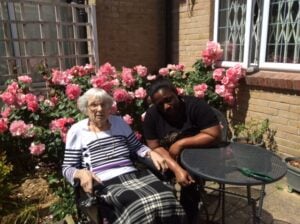Live-in dementia care
Dementia care at home offers familiar surroundings and personalised support. With Elder, you can arrange trusted live-in dementia care tailored to your loved one’s needs. Learn how we can help.

Used by 5,000+ families across the UK
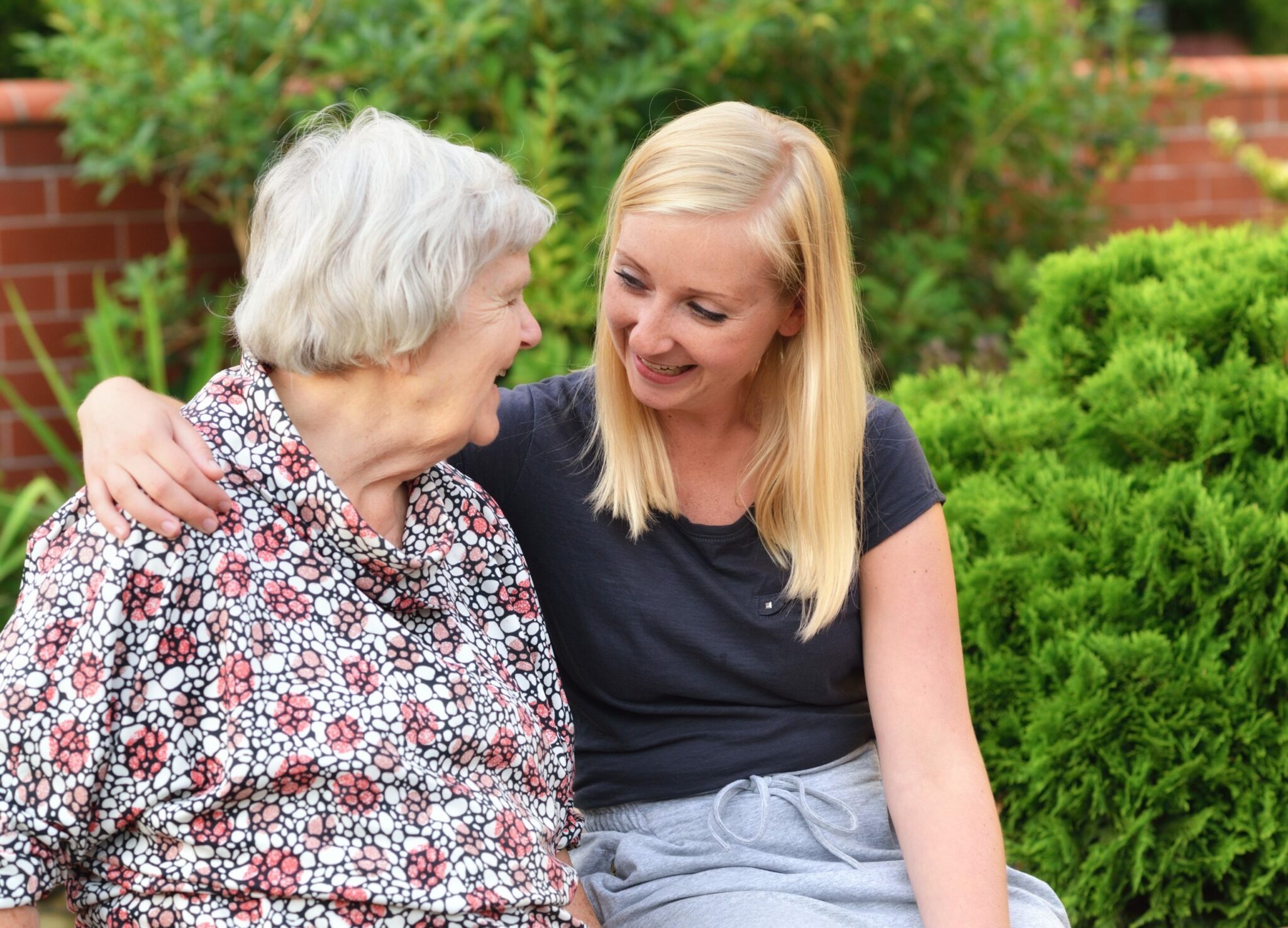
More value
On average, services facilitated by Elder are 35% cheaper than traditional alternatives.
More control
Set your care hours from our custom built app. Manage and collaborate care with family.
More choice
View carer profiles, read reviews from other families, and arrange a video/phone call ahead of placement.
More support
From our family support specialist to our in-house clinical team, we’re on hand if you need us.

We are an award-winning marketplace connecting families and carers.
Every care story is personal, and ours is no different. Our founder, Pete, was inspired to help families like yours after struggling to find the right care for his own Gran, Frances. Fast forward to today and our platform has connected thousands of families and self-employed carers. Our tools personalise every care experience, eliminate unnecessary paperwork, and empower families to take control of later life.

What is dementia care?
Dementia care is a form of specialist support designed to help people with dementia live as safely, comfortably, and independently as possible. It refers to caring for all types of dementia – including Alzheimer’s, Lewy Body dementia, vascular dementia, frontotemporal dementia, and mixed dementia – at every stage of the condition.
From early signs like confusion and memory loss to more advanced symptoms such as wandering or difficulty eating, dementia care provides tailored support to meet a person’s changing needs.
Experienced dementia carers use techniques like reminiscence therapy, routine-building, nutritional support, and help with challenging behaviours such as sundowning to improve quality of life and wellbeing.
When is dementia care needed?
There’s no single moment when dementia care must begin, but there are signs that can help families recognise when it’s time to seek extra support.
You might consider dementia care when:
- Your loved one’s needs are becoming harder to manage safely at home
- They are forgetting daily tasks like dressing, eating, or taking medication
- Wandering, disturbed sleep, or confusion is putting them at risk
- You’re feeling overwhelmed, anxious, or burnt out as a family caregiver.
Care doesn’t always mean moving to a care home – many people with dementia are supported at home with help from a visiting or live-in carer. The right time to begin care is when it improves quality of life for everyone involved.
Tip: Early support can help ease stress and allow your loved one to stay at home longer, with more comfort and stability.
If you’re unsure whether your loved one needs dementia care, we’re here to help. Our expert care advisors can talk you through your options and help you plan for the future, whether support is needed now or later.

Living well with dementia
Dementia can impact many areas of your loved one’s life, as well as their family and friends. With the right support and guidance, however, it’s possible to live well with dementia. For expert advice and information on accessing support, read our comprehensive article Living well with dementia reviewed by our Clinical Lead Nurse Bianca Wardle.
Types of dementia care we offer
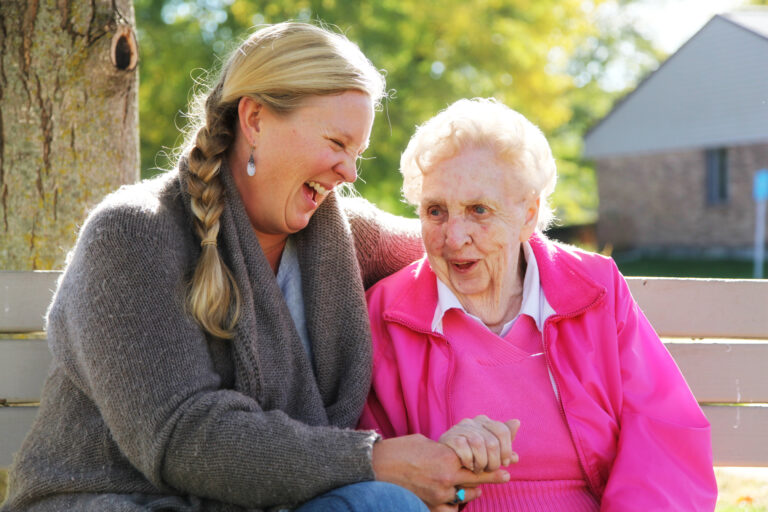
Live-in dementia care
- A carer moves in with your loved one to support them 24/7
- Personalised care tailored to dementia symptoms and routines
- Ideal for those needing consistent, one-to-one supervision
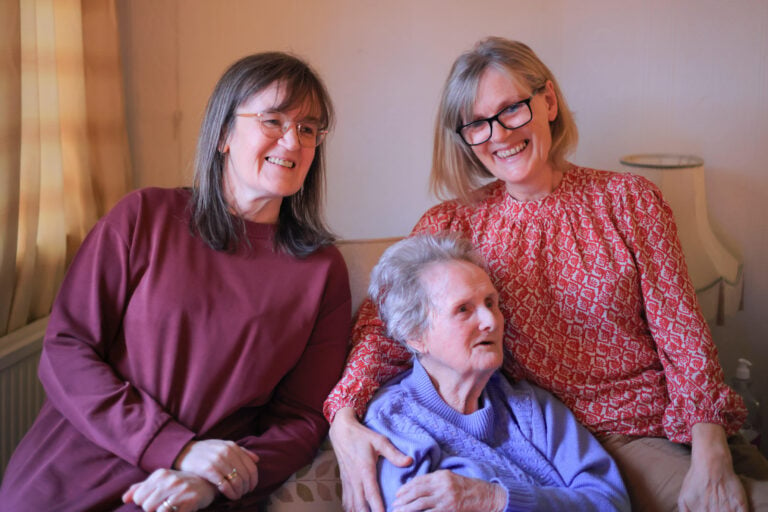
Dementia hourly care
- Flexible, hourly based care in the comfort of your home
- Help with daily tasks like meals, medication, or companionship
- Best suited for early-stage dementia and part-time support

Dementia respite care
- Short-term cover while the primary carer takes a break
- Professional, reassuring support for the person with dementia
- Helps prevent carer burnout and maintain quality of care
Customer experiences with dementia care
Discover how our dementia care services have positively impacted families just like yours.
Joanne's story
Joanne, the daughter of Patricia who lives with mild dementia, shares how Elder’s dementia care has transformed her mum’s daily life.
“Rose has made a big effort to get to know Mum’s life and what makes her tick.”
“It’s incredible how she’s really become part of the local community, just like Mum. She integrated really well and that comes down to the fact that whatever my mum does, Rose does too.”
“They’re a bit of a dynamic duo together. They also have concerts and sing together. This is great because it really brings people together – our whole family goes along to watch and Rose’s family do too.”
We’ve been really pleasantly surprised how a real friendship has flourished. It means Mum has a real companion – someone who knows her really well. It’s lovely to see and makes her so happy.

“Rose knows how to get my mum up and out of the house, to keep her motivated – which I think is really good for Mum’s condition.”
“It can sometimes be tricky to get her out of bed but once she’s out, she always really enjoys it.”
“Mum has a free bus pass, which gives them both a bit of freedom to go on trips together. Rose sends me WhatsApp pictures of their days out – it’s lovely to see what they’re up to, you know, but also really reassuring to see Mum so happy.”
Often on their trips, Rose takes Mum back to the town where she used to live. It jogs her memory, helping her connect with her past. She starts telling stories of her time there – usually tales of the places she sang in or played.

Why choose live-in dementia care?
Live-in dementia care allows your loved one to remain in the comfort and familiarity of their own home, with a dedicated carer providing round-the-clock support. It’s a highly personalised and compassionate alternative to care homes – one that can significantly improve quality of life, safety, and wellbeing.
Maintain routines and independence
Staying in their own home means your loved one can keep to familiar routines – waking up, eating, and going to bed when they choose. Live-in dementia carers are trained to support independence, offering help only where needed, whether that’s preparing meals, assisting with personal care, or keeping to daily tasks. This gentle approach helps maintain confidence and a sense of control.
Stay connected to the community
Remaining at home helps preserve important social connections, local routines, and community ties. Many towns and cities are becoming more dementia-friendly, with accessible shops, cinemas, and public spaces designed to support those living with cognitive challenges.
Freedom to enjoy the outdoors
Live-in care offers the flexibility to continue enjoying fresh air, nature, and daily walks, all of which can boost mood, support better sleep, and improve overall health. Regular gentle exercise also helps with strength, balance, and everyday tasks like dressing or cooking.
Keep cherished companions
Unlike many care homes, live-in care makes it possible to keep beloved pets. Research shows pets can reduce loneliness and stress, and provide valuable emotional support for people living with dementia.
Consistent and personalised nutrition
Live-in carers can tailor meals to meet both nutritional needs and individual preferences. This is particularly important for people with dementia, who may experience changes in taste, appetite, or ability to use cutlery. Having someone on hand ensures regular meals and hydration.
24-hour peace of mind
Dementia symptoms can increase the risk of accidents or confusion, especially at night. A live-in dementia carer is always present to help prevent wandering, falls, or mishaps, offering reassurance and safety around the clock for the whole family.
How does live-in dementia care work?
Live-in dementia care provides one-to-one support in the comfort of home. A carefully matched professional carer moves into the home to offer personalised, round-the-clock care that helps your loved one maintain their independence and daily routines – all while staying safe and supported.
It’s a popular option for people in the early to middle stages of dementia who may not yet need a care home, but still require dedicated, consistent support.

A personalised approach to dementia care
At Elder, live-in care is tailored to the individual. Most people are supported by one or two carers who work on a regular rotation (e.g. four weeks on, two weeks off). This consistency helps build trust and avoids the confusion that can come with multiple care staff.
Each carer is required to have previous experience supporting people with dementia, and undergoes full background checks. Wherever possible, we match carers based on shared interests and personality to encourage a warm, long-lasting relationship.
How to arrange dementia care with Elder
1. Share your care request
Tell us your care requirements using our request form, including the type of care you’re looking for, any specialist skills you need, and what daily life looks like.
2. Select your carer
You’ll start receiving profiles of suitable self-employed carers within 24 hours. Chat to them online or arrange a phone or video call, before choosing who you like best.
3. Manage care
Once your agreement with your carer begins, use your MyElder account to chat with them and the Elder team, manage your schedule and care information, and find respite cover if you need it.
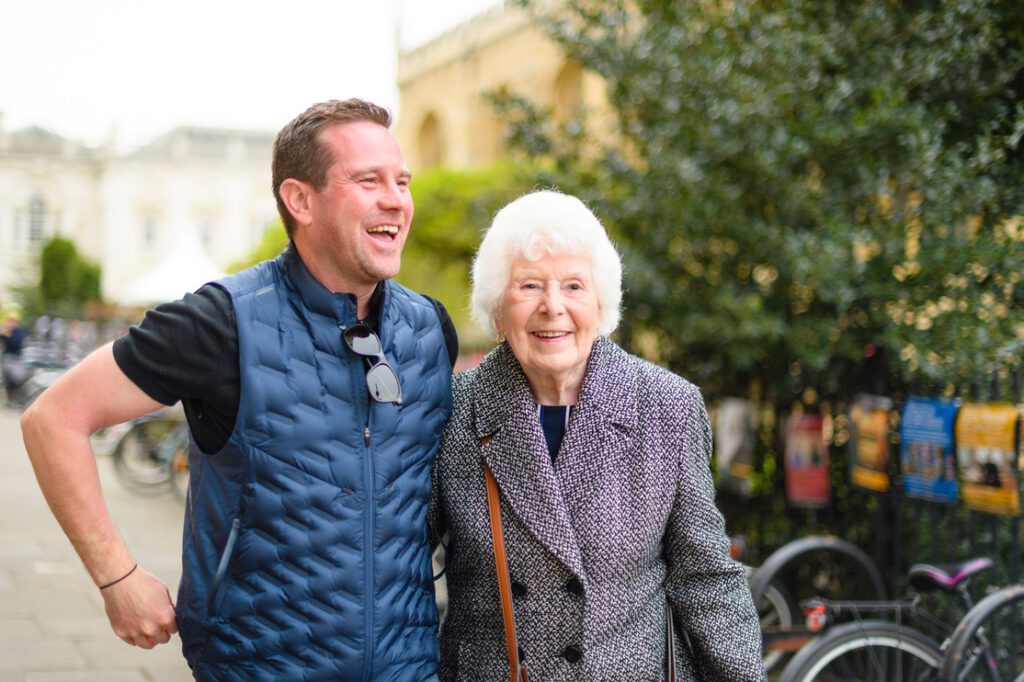
How much does dementia care cost?
The cost of dementia care can vary depending on the type of care needed, such as live-in care or support in a care home. You may be able to pay for care privately, receive support from your local authority, or in some cases, access NHS Continuing Healthcare funding.
To determine what support might be available, a financial assessment and a needs assessment are usually required.
Explore your options for paying for dementia care.
FAQs about dementia care
-
What is dementia?
Dementia is not a single illness, but a group of symptoms that result from damage to the brain. These symptoms often include memory loss, confusion, difficulty with language, and problems with decision-making or thinking clearly.
-
How many types of dementia are there?
There are over 100 types of dementia. The most common ones are:
- Alzheimer’s disease, which is linked with memory loss, confusion, and behavioural changes
- Vascular dementia, which often follows a stroke or issues with blood flow to the brain
- Lewy body dementia, which can involve hallucinations, tremors, and sleep disturbances
- Frontotemporal dementia, which usually affects personality, behaviour, and language skills.
-
What are the early signs of dementia?
Dementia symptoms vary from person to person, but common early signs include:
- Difficulty remembering recent events
- Getting confused about time or place
- Struggling to follow conversations
- Mood swings or changes in personality.
If your loved one is showing signs of dementia, it’s important to speak to a GP. Early diagnosis can help you access the right support and plan for future care.
-
What’s the difference between Alzheimer's and dementia?
The main difference is that Alzheimer’s is a specific disease that affects the brain, while dementia is a set of symptoms caused by various brain disorders, including Alzheimer’s.
Alzheimer’s disease leads to a progressive decline in memory and thinking skills, which results in dementia. It is the most common cause of dementia, but there are other causes as well.
-
Can dementia care be provided at home?
Yes, dementia care can be delivered in the comfort of your loved one’s home. Dementia home care offers personalised support that adapts to changing needs, helping maintain familiar routines and independence. Whether through occasional visits or full-time live-in care, dementia care at home provides a flexible and compassionate alternative to residential care, keeping your loved one safe and supported where they feel most comfortable.
-
Are live-in carers trained to deal with dementia patients?
Elder-approved carers are well equipped to deal with low- to mid-level dementia needs, as well as manage the symptoms that come with the condition. More pronounced needs may, however, require a specialist environment, such as a nursing home.
-
Do live-in carers look after all forms of dementia?
Yes. Elder-approved carers are experienced in supporting all types of dementia, including Alzheimer’s, vascular dementia, Lewy body, and more. They take a personalised approach, learning what works best for each person and providing calm, consistent support throughout the condition’s progression.
-
How can a carer help dementia patients?
A carer supports dementia patients by helping them maintain as much independence as possible while providing assistance with daily tasks they find challenging. They encourage continuing with hobbies and activities, adapting these as needed to keep the person engaged and mentally stimulated.
Dementia carers assist with practical needs such as managing appointments, medication, cooking, and personal hygiene, ensuring safety and comfort. They also offer companionship, helping to reduce feelings of isolation and anxiety.
Additionally, carers can connect dementia patients with community resources like cognitive stimulation groups and dementia cafes, which promote wellbeing and social interaction. By providing consistent, personalised care, carers play a vital role in improving quality of life for people living with dementia.
-
When should someone with dementia go into a care home?
Moving into a care home is usually considered when a person with dementia can no longer be safely or properly cared for at home. This might happen if they experience frequent falls, have changing health needs after hospital stays, or if their current carer is unable to provide adequate support.
Read more about dementia care
Click below to discover more on living with and caring for dementia.


